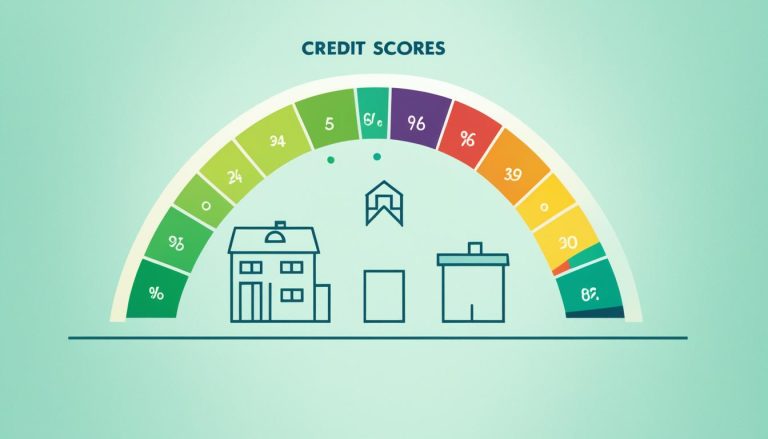Buying a house is a significant milestone in life, and one of the most crucial elements lenders evaluate is your credit score. Whether you’re a first-time buyer or moving up the property ladder, understanding your credit score and how it affects your mortgage eligibility is essential.
Why Does Your Credit Score Matter When Buying a House in the UK?
Lenders use your credit score as one of the key tools to determine your suitability for a mortgage. A high credit score reflects a consistent and reliable payment history, which reassures lenders that you’re capable of managing debt responsibly.
A low score, by contrast, may indicate past financial difficulties, missed payments, or a lack of credit history, which can raise concerns about the risk of default.
A credit score alone doesn’t guarantee approval. Lenders also examine your credit report, which includes:
- Payment history
- Outstanding debt balances
- Length of credit history
- Credit utilisation ratio
- Types of credit accounts held
Each of these factors plays a role in assessing how likely you are to repay the loan on time.
What Are the Different Credit Reference Agencies in the UK?

There are three main credit reference agencies (CRAs) operating in the UK:
- Experian: Experian scores range from 0 to 999. A score of 700 or above is generally considered good. A score over 800 is typically rated as excellent. Experian is widely used by lenders and offers detailed insight into your financial history.
- Equifax: Equifax uses a scale from 0 to 1000. A good credit score starts at 420, with an excellent score at 475 or above. Equifax is often used by lenders offering more niche or specialised mortgage products.
- TransUnion: TransUnion scores range from 0 to 710. A good score starts at around 604, and anything above 628 is considered excellent.
Rather than just providing a numeric score, TransUnion also categorises your credit status using a 1–5 rating scale.
Below is a comparative table of the scoring systems:
| Credit Agency | Score Range | Good Score | Excellent Score |
| Experian | 0 – 999 | 700+ | 800+ |
| Equifax | 0 – 1000 | 420+ | 475+ |
| TransUnion | 0 – 710 | 604+ | 628+ |
These agencies collect financial data from lenders, utility providers, and public records to assess your financial health.
What Is Considered a Good Credit Score by UK Lenders?
A good credit score varies slightly depending on which agency is being referenced. However, mortgage lenders in the UK typically consider the following ranges as benchmarks for approval:
- Experian: Scores between 700 and 799 are classed as good. Anything over 800 is considered excellent and gives access to the best mortgage rates.
- Equifax: A score from 420 to 474 is good, with 475 and above classed as excellent.
- TransUnion: Scores between 604 and 627 are seen as good, while 628 to 710 is excellent.
It’s important to remember that each lender has their own internal criteria. A good credit score with Experian doesn’t guarantee approval if another part of your financial profile doesn’t meet the lender’s requirements.
Lenders also assess:
- Your current income and employment status
- Existing debts and financial commitments
- Stability of your address history
- Bank account management behaviour
What Minimum Credit Score Is Required to Get a Mortgage in the UK?

There is no universal minimum credit score to qualify for a mortgage, as this varies between lenders.
That said, most mainstream lenders prefer applicants to have at least a “good” score as defined by one of the major CRAs.
However, there are lenders who specialise in applicants with lower scores or limited credit history, although they often charge higher interest rates and require a larger deposit.
The following table outlines general expectations from different types of lenders:
| Lender Type | Preferred Credit Score | Typical Deposit Required |
| High-Street Banks | Good to Excellent | 5% to 10% |
| Building Societies | Fair to Good | 10% to 15% |
| Specialist Lenders | Poor to Fair | 15% to 25% |
While the credit score matters, it’s only one part of a broader risk assessment that lenders undertake before granting a mortgage.
How Does Your Credit Score Affect the Type of Mortgage You Can Get?
Your credit score is one of the most influential factors lenders consider when determining what type of mortgage you qualify for. It not only influences whether you get approved, but also what kind of mortgage deal you’re offered, including the interest rate, deposit requirement, and flexibility of the mortgage product.
Influence on Mortgage Approval
Applicants with high credit scores are typically seen as lower risk. As a result, they’re more likely to be approved for mortgages without needing to provide additional documentation or guarantees. Lenders see strong credit scores as evidence of responsible financial management, which reduces their perceived risk.
In contrast, if you have a low or average credit score, lenders may:
- Limit the size of the loan you can access
- Require more extensive affordability checks
- Ask for a larger deposit to offset their risk
- Offer you fewer product choices, often from a restricted panel
Some lenders may outright decline applications that fall below their minimum credit score threshold.
Impact on Interest Rates
Interest rates can vary significantly based on your credit profile. If your score is in the “excellent” category, you are more likely to be offered the lowest available interest rates on the market. This can save thousands of pounds over the life of the mortgage.
Borrowers with “fair” or “poor” credit scores may only qualify for higher interest rates, increasing monthly repayments and the total cost of the mortgage.
Even a small difference in the interest rate has a major financial impact over time. For example:
| Credit Score Band | Estimated Interest Rate (Example) | Monthly Repayment on £200,000 | Total Interest Over 25 Years |
| Excellent | 3.25% | £976 | £92,800 |
| Good | 4.00% | £1,056 | £116,800 |
| Fair | 5.50% | £1,230 | £169,000 |
Figures are illustrative and may vary depending on lender, term length, and product type.
Influence on Loan-to-Value (LTV) Ratio
Your credit score can also affect the loan-to-value (LTV) ratio a lender is willing to accept. LTV is the percentage of the property’s value that you borrow versus the deposit you put down.
- A higher credit score may allow you to borrow at higher LTVs (e.g., 95%)
- A lower score may require a lower LTV, meaning a larger deposit (e.g., 75–85%)
This directly influences how much of the property value you’ll need to cover upfront, which can be a significant barrier for some buyers.
Types of Mortgage Products Available
Borrowers with strong credit scores will typically have access to:
- Fixed-rate mortgages with low interest
- Tracker mortgages with competitive margins
- Longer-term fixed products (e.g., 5 or 10 years)
- Offset mortgages, which reduce interest using linked savings
Those with weaker scores may only be offered:
- Subprime or specialist mortgages
- Products with higher fees and limited features
- Short-term fixed or variable rate products
- Guarantor mortgages (requiring a family member to co-sign)
In some cases, applicants may need to wait and improve their credit profile before qualifying for standard mortgage products.
Flexibility and Additional Features
A good credit score can also unlock mortgages with additional benefits, such as:
- No early repayment charges
- Free valuation or legal fees
- Overpayment flexibility
These extras can make a significant difference in the long run, especially if you plan to pay off your mortgage early or move home in the near future.
Overall Mortgage Affordability Assessment
While the credit score is a major component, lenders still take a holistic approach to affordability. They assess:
- Your income and employment status
- Debt-to-income ratio
- Monthly financial commitments
- Any dependents or joint applicants
But your credit score acts as the starting point. A higher score often makes the entire process smoother, faster, and more predictable, while a lower score adds more scrutiny and potential limitations.
Can You Buy a House in the UK with a Bad Credit Score?

While challenging, it is possible to buy a house with a poor credit score. Some specialist mortgage providers cater to individuals with adverse credit histories, including:
- Missed or late payments
- County Court Judgments (CCJs)
- Defaults on loans or credit cards
- Bankruptcy or IVA history
To increase your chances, consider:
- Providing a larger deposit (often 15–25%)
- Demonstrating stable employment and regular income
- Reducing existing debts before applying
- Working with a mortgage broker who has experience in bad credit mortgages
The trade-off often includes higher interest rates and more stringent affordability checks.
How Can First-Time Buyers Improve Their Credit Score Before Applying?
First-time buyers may find it difficult to secure competitive mortgage rates if their credit score is low or if they have limited credit history.
Improving your credit score even moderately can make a significant difference in mortgage options.
Effective ways to improve your credit profile include:
- Paying all bills on time, especially credit cards and loans
- Keeping credit utilisation below 30% of your limit
- Registering on the electoral roll at your current address
- Avoiding multiple hard credit checks in a short time frame
- Checking your credit reports for inaccuracies and disputing any errors
Consistency in managing financial obligations over time has a strong positive impact on your credit score and mortgage prospects.
What Are Some Common Credit Report Mistakes to Watch Out For?
Mistakes on your credit report can negatively affect your ability to secure a mortgage. It is recommended to check your credit reports with all three major CRAs to ensure all information is accurate and up to date.
Common errors include:
- Incorrect addresses or outdated contact details
- Financial links to someone with a poor credit history
- Duplicate or outdated accounts
- Inaccurate records of late or missed payments
If you find an error, you can raise a dispute directly with the relevant CRA. They will contact the lender involved and aim to resolve the issue, usually within 28 days. Keeping your records clean is an important part of mortgage preparation.
How Can You Check Your Credit Score for Free in the UK?
There are several reputable platforms that allow consumers to access their credit scores at no cost.
Each platform is associated with one of the three major credit reference agencies and provides a slightly different view of your credit history.
Free platforms include:
- Experian via MSE Credit Club
- ClearScore for Equifax credit scores
- Credit Karma for TransUnion reports
These platforms also provide alerts for significant changes, such as new accounts, missed payments, or credit score drops.
Reviewing your credit score regularly allows you to make informed decisions and address any potential issues early on.
What Credit Score Do UK Lenders Prefer for the Best Mortgage Rates?
Lenders tend to reserve their best mortgage rates for applicants with excellent credit scores. These rates are typically fixed for longer periods and come with lower fees and more flexible terms.
While no score guarantees approval, most lenders prefer to see:
- Experian: 800 or above
- Equifax: 475 or above
- TransUnion: 628 or above
Even if your score falls slightly short of these numbers, maintaining a strong credit profile and a low debt-to-income ratio can improve your overall application strength.
How Do UK Credit Score Bands Compare Across Agencies?

Credit scores differ between CRAs, not just in the number ranges but in how they interpret those ranges. Understanding these differences can help you know where you stand with each agency.
| Score Band | Experian (0–999) | Equifax (0–1000) | TransUnion (0–710) |
| Very Poor | 0–560 | 0–438 | 0–550 |
| Poor | 561–720 | 439–530 | 551–565 |
| Fair | 721–880 | 531–670 | 566–603 |
| Good | 881–960 | 671–810 | 604–627 |
| Excellent | 961–999 | 811–1000 | 628–710 |
Most lenders understand these differences and will consider the context of your score alongside other financial indicators.
Conclusion
Your credit score plays a pivotal role in securing a mortgage in the UK. While each lender evaluates applicants differently, aiming for a “good” or “excellent” score across major credit reference agencies improves your chances of approval and unlocks better mortgage deals.
Even if your score isn’t perfect, there are steps you can take to improve it and explore alternative mortgage options. Being informed, proactive, and credit-aware is your best asset in the UK property market.
FAQs About Credit Scores and Mortgages
Does checking my credit score lower it?
No, checking your own credit score is considered a “soft search” and does not affect your score.
How long does it take to improve a credit score for mortgage approval?
It depends on your current situation, but with consistent effort, improvement can begin in 3–6 months.
Can I get a mortgage with no credit history?
It is difficult. Lenders prefer some credit history to assess financial behaviour. Consider building credit first.
Will paying off debt instantly improve my credit score?
Paying off debt helps, but other factors such as payment history and credit age also play a role.
Are joint applications affected by both credit scores?
Yes, both applicants’ credit scores will be considered, and one poor score can impact approval chances.
How often do credit scores update?
Credit scores can update monthly based on your financial activity reported to CRAs.
Is it worth using a mortgage broker if I have bad credit?
Yes, brokers often have access to lenders who specialise in bad credit mortgages and can find tailored solutions.
1. What is a Good Credit Score to Buy a House in the UK?
Prompt:
A realistic illustration of a couple reviewing financial documents and credit score reports in front of a suburban UK house, with a subtle overlay of digital graphs and mortgage indicators, wide aspect, no text
2. What Are the Different Credit Reference Agencies in the UK?
Prompt:
An office scene showing three different desks with abstract symbols representing Experian, Equifax, and TransUnion, each showing data charts or reports, modern British setting, wide aspect, no text
3. What Minimum Credit Score Is Required to Get a Mortgage in the UK?
Prompt:
A conceptual UK-style bank interior with a mortgage advisor explaining credit score thresholds to a young couple using a digital screen showing credit score levels and home icons, wide aspect, no text
4. Can You Buy a House in the UK with a Bad Credit Score?
Prompt:
An illustration of a modest UK home with dark clouds above it, a person standing outside holding a declined mortgage letter, hopeful look towards a smaller home in the distance, wide aspect, no text
5. How Do UK Credit Score Bands Compare Across Agencies?
Prompt:
A data visualisation scene showing three different colour-coded vertical score charts on digital panels labelled as credit score bands, people comparing scores in a UK financial office, wide aspect, no text







Brilliant write-up! Interesting and full of actionable advice. Kudos!